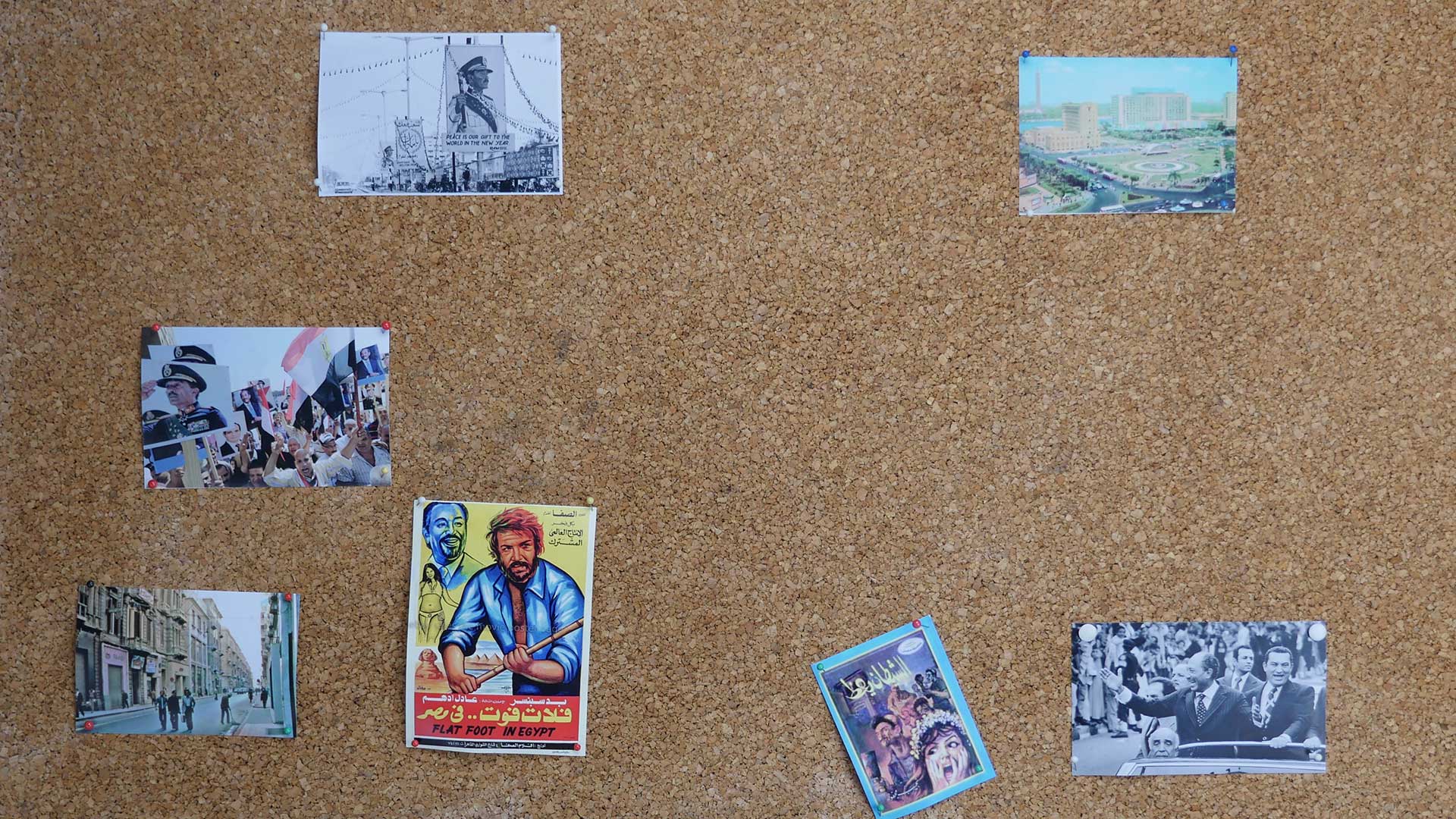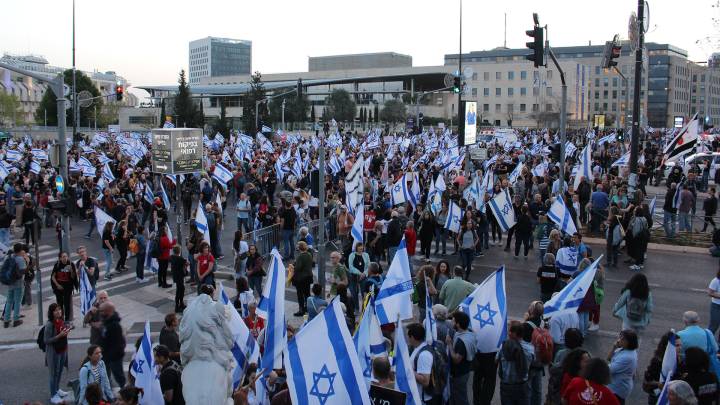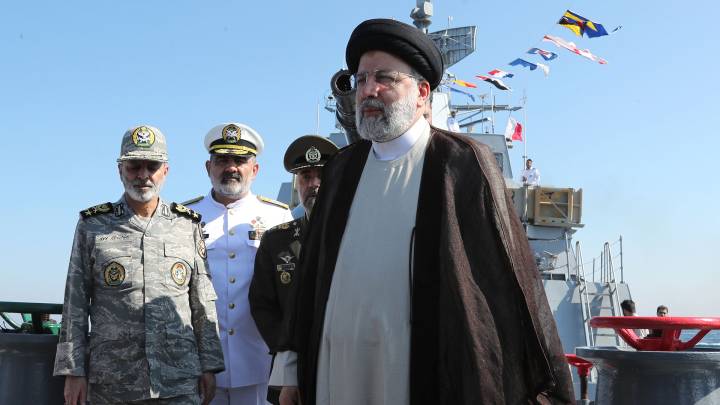Camp David rewarded Egypt's army for peace but also paved the way for the repressive surveillance state. When the revolution hit the streets in 2011, it dawned on our author how pivotal 1979 proved to be in that context.
Like many Egyptians I grew up with no political education. Most of what I learned was whatever was mainstream in my circles and my circles like many others knew very little. I was left with impressions that Gamal Abdel Nasser was the first president of Egypt, that Sadat was a visionary for making peace with Israel and that Mubarak was a wise leader. I was also subjected to two polar opposites, that Israel was a civilized democracy or the devil incarnate. History and politics were never really on the table.
Most of what I thought was true turned out to be propaganda, and I was not able to tell that it was at the time. After all, how could I? I was only subjected to one side of a story and barely stumbled upon anything much to contradict it.
I grew up spending time between Egypt and other places where my father had to work. My parents sought economic refuge in the gulf, and even though my father was an engineer, a profession esteemed within Egyptian society, my parents did not find adequate opportunities to earn a decent income in Egypt. Meanwhile a whole segment that was close to the ruling ‘elite’ made money out of thin air, owing mostly to Sadat’s Infitah, a policy that referred to opening the door to private investment. As these doors opened, a great many others closed.
Economic hardships in Egypt forced many Egyptians to seek economic refuge outside of Egypt. In exchange for money, gulf countries exported conservatism back to Egypt. For Christian minorities, conservatism and discrimination made escape from Egypt doubly important. I found myself between a western education in certain schools in the gulf and a society in Egypt and the Arab world continuously conservatized.
My understanding of the Arab-Israeli conflict was shallow, and the narrative I was presented with was naïve.
My understanding of the Arab-Israeli conflict was shallow, and the narrative I was presented with was naïve. One defining moment, however, was when I was brought on an English-language show on Egyptian TV to discuss Palestine. I was invited only because I was fluent in English and I was young enough to be on a show targeting youth. When my turn came to speak, I parroted what was repeated incessantly in uninformed conversations all my life, that the Palestinians had sold their land and stubbornly rejected a peace deal offered by Sadat. This time around, a politics and history professor to answer. He refuted my claims on air and when I verified his, I wondered how many more lies I had been fed.
Alignment with the US and the shift to capitalism meant the steady decay of the social security nets put in place. Despite the peace, Egypt plummeted into a lethargic state of consumerism, never truly developing the culture to build.
There was no single moment of clarity, rather, many defining moments where a contradiction or reality challenged the many layers of lies as they peeled off one at a time. I may have spent a lifetime oblivious to how much Camp David shaped my world had it not been for the revolution. We came into direct confrontation with its effects in the lead up and the aftermath of the January 25 uprising.
The media blackout that preceded the 2011 revolution in Egypt kept a small number of people invested in politics, but the eruption of January 25th made many more attentive. Long before the flood of misinformation dominating the internet today, it was possible to research questions of interest without having to go through piles of garbage put out by trolls and propagandists. Those in power had not yet perceived the internet as a space threatening enough to restrict and dominate.
When the police collapsed in the evening of January 28th 2011, the Egyptian military had a choice of whether it will side with the people or side with Mubarak. It did neither, it sided with its own interest which was the extension of the status quo with a change of faces. People had expected, the military to take the protesters’ side much like the military had done in Tunisia. Yet the military had too many interests to let that go.
In the aftermath of the Camp David treaty, Egypt had become the second largest recipient of aid from the US. The military had been paid off by the US in order to shift their attention to interests other than war with Israel. Sadly, that gave them more time and resources build their economic empire. Alignment with the US and the shift to capitalism meant the steady decay of the social security nets put in place. What became apparent is that due to the change of policy and despite the peace, Egypt plummeted into a lethargic state of consumerism, never truly developing the culture to build.
The parallels between the oppression of Israel’s occupying military force and what we witnessed from the Egyptian military regime following the January 25 uprising were disturbing.
In line with government efforts to sell Camp David to Egyptians, two contradicting messages were continuously propagated. First, that the peace deal was a victory for Egyptians along with the 6th of October war, and second, that every failure was due to a conspiracy by Israel and the US to undermine Egypt. A close look at the US budget, the open communication lines with Israel and the Camp David peace accords are enough to discredit these messages, and yet they remain, because it has been rare that people look closely.
Looking back at Egypt’s history, and where we are at now, it is clear that everything is interconnected. The revolution has brought injustices in focus, and it has made me sensitive to the injustices that happen around us. Starting from apartheid Africa and the similarity with which the Israeli state deals with Palestinians. The Hasbara that sounds all too similar to Egyptian regime propaganda. The administrative detention and the killings of Palestinians without accountability, all unquestioned by the international community.
The parallels between the oppression of Israel’s occupying military force and what we witnessed from the Egyptian military regime following the January 25 uprising were disturbing. Later on when our colleagues who covered Egypt reported on what was happening in Gaza and the west bank, we realized that the ugliness of oppressive regimes knows no bounds.
The conversation about what happened four decades ago is still alive in many ways. As long as injustice prevails, we are unable to move past it, even when we are oblivious to history. The Camp David accords read more like a surrender and the victims are an Egyptian people subdued by their profiteering military along with Palestinians whose lives have become cheaper with every Israeli atrocity towards them.
Today’s Egypt with its injustices and policies are a product of all our history. There is no escaping that. Would our future have been much different had we lived constantly under the threat of war?
To add insult to injury, the present Sisi regime is being supported wholeheartedly by Israel who have lobbied the US hard to accept the coup and turn a blind eye to the human rights violations by the present regime.
Operations in Sinai have evicted and displaced countless North Sinai residents with a complete media blackout. At the same time, the international community continues to bail out Egypt despite the atrocities committed against their own people. As a direct result, Egypt is participating in a siege in Gaza that is denying its inhabitants the right to a decent life.
Today’s Egypt with its injustices and policies are a product of all our history. There is no escaping that. Would our future have been much different had we lived constantly under the threat of war? Would there be many more Egyptian lives claimed like we see Palestinians? It is difficult to know, but the only thing that’s certain today is that the sum of history has lead us to Egypt living the worst times in its human rights history.
Camp David wasn't just an event that defined an era which shaped my world, it was a personal journey of discovery to understand that world and why it was so. Politics happen to you, but there are some of us who want to understand what's happening and others who do not want to take a step back to see the bigger picture.
Wael Eskander was born in 1980 and spent his childhood between Egypt and the Gulf states. He was politically active even before the Arab Spring and founded his blog "Notes from the Underground" in 2006. As a freelance journalist Wael Eskander wrote for Al-Ahram, Daily News Egypt, Jadaliyya and Mada Masr, among others.




